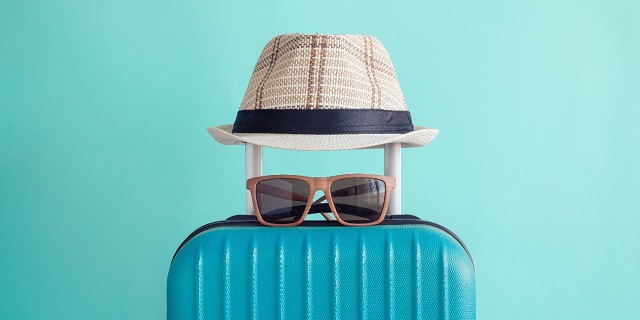It's been a tough few years for travellers. The global COVID-19 pandemic has wreaked havoc on the industry. As a result, airlines have reduced the number of flights available, and some countries still have many restrictions.
While many Canadians were optimistic about their travel plans once they were fully vaccinated, variants and government advisories have made them wonder if it's safe to travel again?
The reality is COVID-19 will likely be around for a while. So, if you're thinking about travelling, you just need to use your best judgement and protect yourself as best you can. Here are the things you need to be aware of if you plan on travelling soon.
Rules are constantly changing
As we've quickly learned, rules regarding COVID-19 can change at any time. For example, some countries require travellers to be fully vaccinated to avoid a lengthy quarantine. In contrast, others have no requirements at all.
As for COVID-19 tests, every country and airline have their own rules. You must do thorough research before deciding on a destination to ensure that you’re ready to comply with any rules or restrictions they may have in place. Showing up with an antigen test when a PCR is required could cause a huge headache.
At the time of posting a negative antigen result must be taken when residents wish to return to Canada, which is relaxed from previous rules requiring a negative PCR test. Be sure to check the latest requirements on the Government of Canada website.
Mask mandates can also vary from location to location, the takeaway here is to do your due diligence before travelling anyway and be sure to stay flexible about any rule changes that may occur while you’re there.
You would be wise to get travel insurance
Admittedly, travel insurance was arguably a must even before the pandemic started, but many people still travelled without it. However, with COVID-19 still a real threat, it would be risky to travel without a good insurance package.
Having travel medical insurance is often considered the bare minimum. Since the cost of medical attention can be expensive in many countries, you'll want to ensure you have insurance. This can cover you from a quick trip to the doctor to a medical evacuation. Make sure you check the travel insurance policy to be sure it covers COVID-19 incidents, as some insurance providers are still excluding it. You'll also want to make sure you understand the procedure if you need to make a claim.
Extended travel insurance, may be a wise decision if you’re planning to go abroad during the pandemic. These are uncertain times and having more protection can be beneficial in the case of a new variant or other issue that crops up during your trip.
Again, you'll want to read the details of your policy to ensure you have enough protection. For example, some extended travel insurance policies will cover your hotel bills if you need to quarantine before returning home, but not all of them. It's probably a good idea to choose the fully refundable option where available.
Generally speaking, the cheapest option comes with the least flexible refund policy when it comes to travel reservations. For example, the most affordable airfare class often states no refunds. While this is great on your wallet, it's not ideal if you're worried about your safety.
Moving forward, it's worth considering the more expensive options if it allows you to change or cancel your plans without any additional fees. It's also worth paying attention to the current policies available since airlines and hotels are regularly adjusting things to reflect the current conditions.
Alternatively, some travel providers offer optional insurance that can be well worth the cost. It’s well worth shopping around to find the deal that works best for your unique situation.
Double-check the local rules
Besides vaccination and quarantine rules, you'll also need to double-check the rules on the ground. For example, many destinations have crowd capacities at restaurants, public spaces, and tourist attractions. Some attractions even required pre-purchased timed admission tickets. While this is an inconvenience, cities and countries are trying to keep COVID-19 under control.
The tricky thing is that these rules can change at any time. The COVID-19 numbers may have been low when you booked your tickets, but variants can quickly spread, which may cause new lockdowns.
So, is it safe to travel again? That's a matter of opinion. COVID-19 will always be a concern, so you just need to keep yourself updated and ask yourself if travelling is worth the risks. If you decide to go, make sure you have the right insurance since it'll give you an added layer of protection.



 Travel and lifestyle
Travel and lifestyle